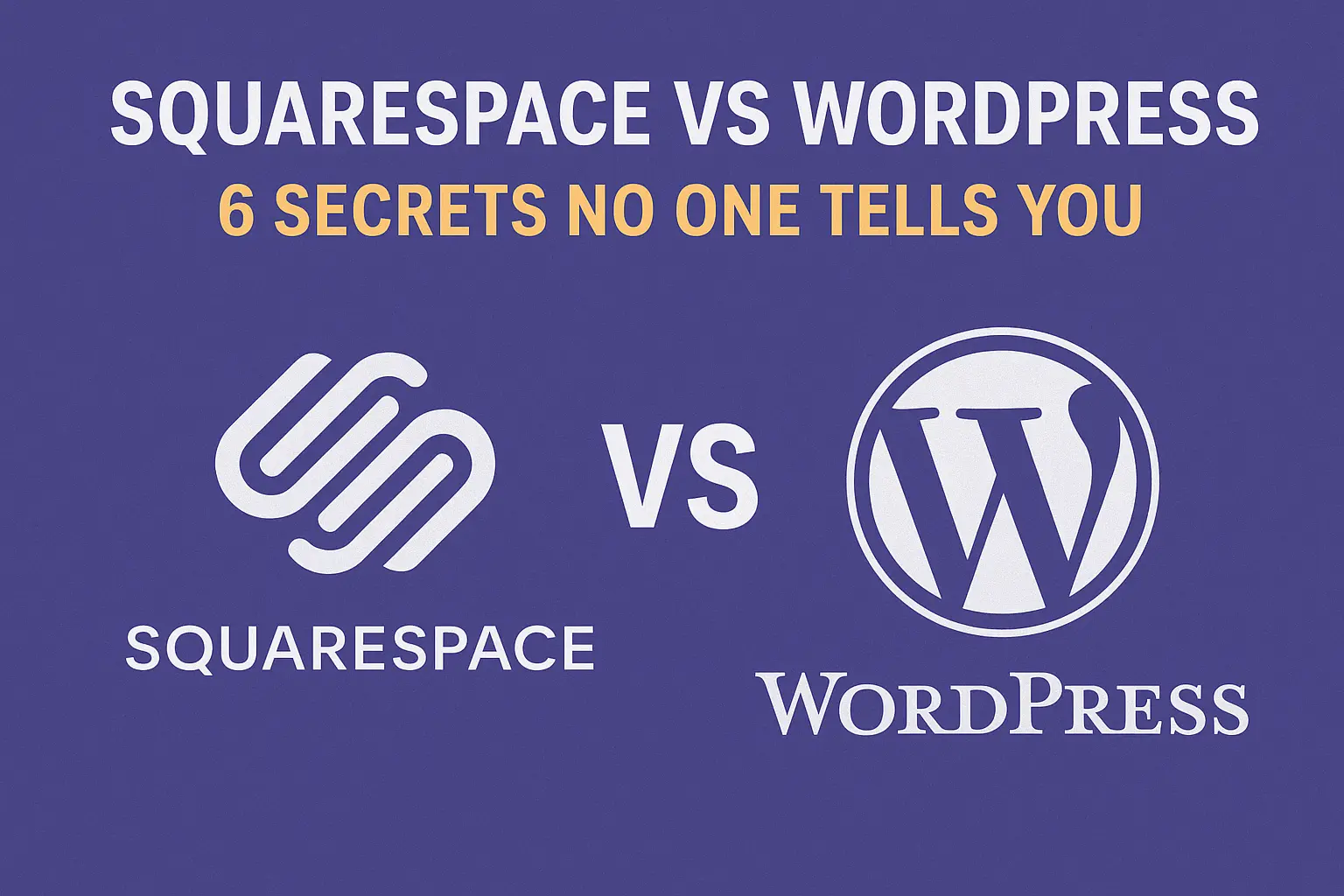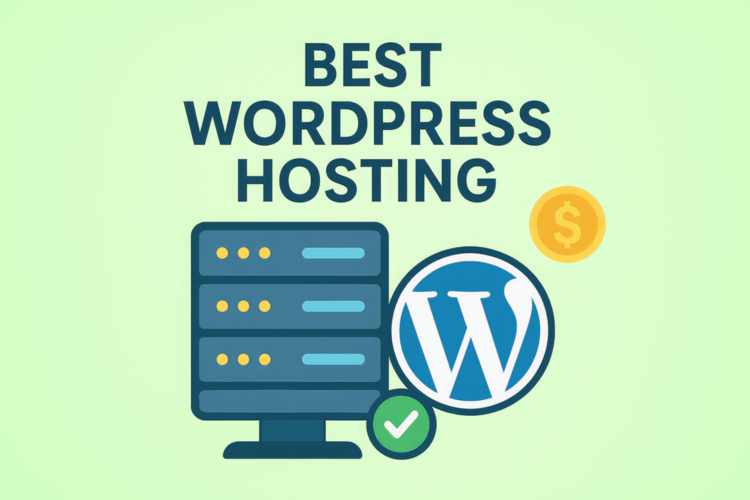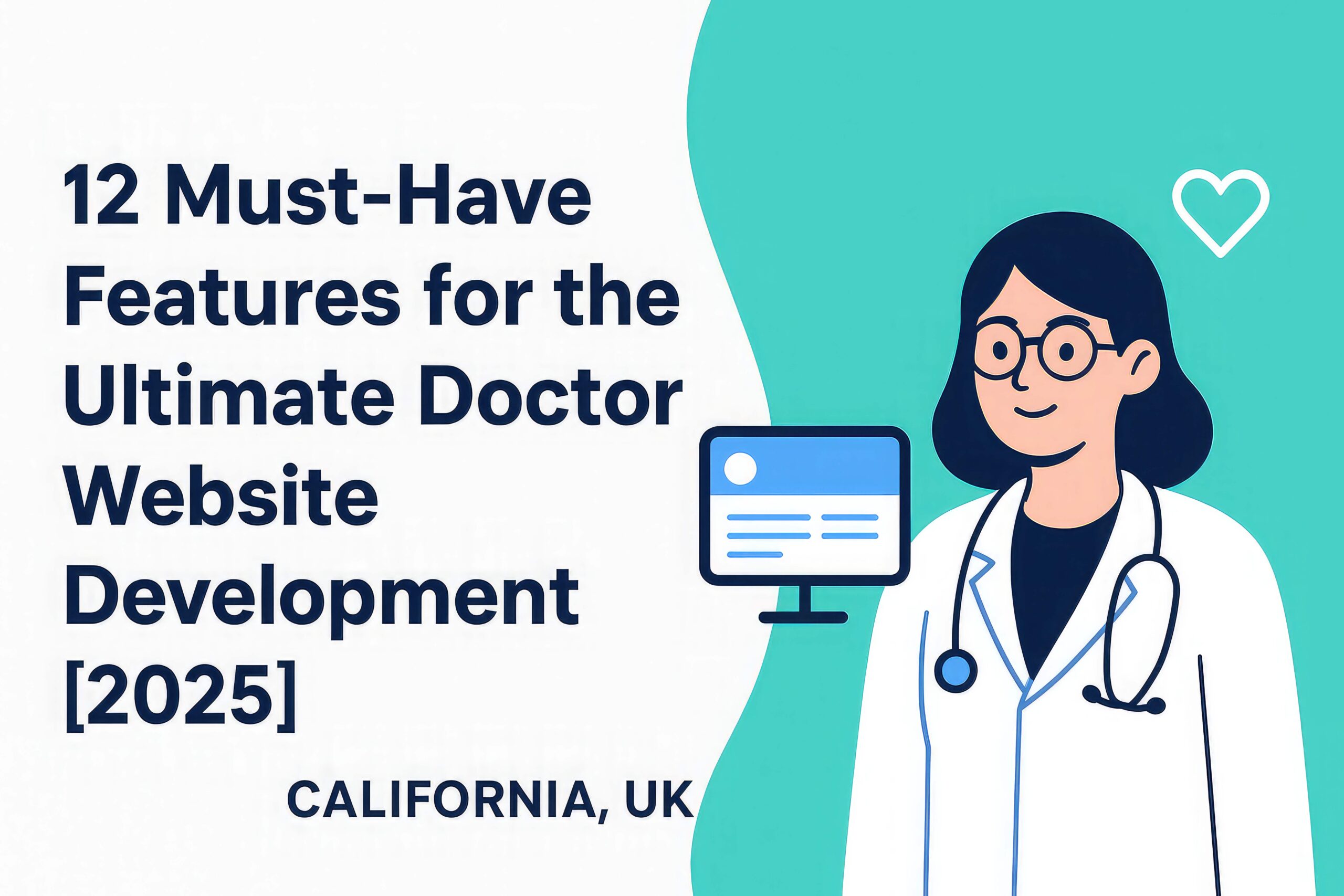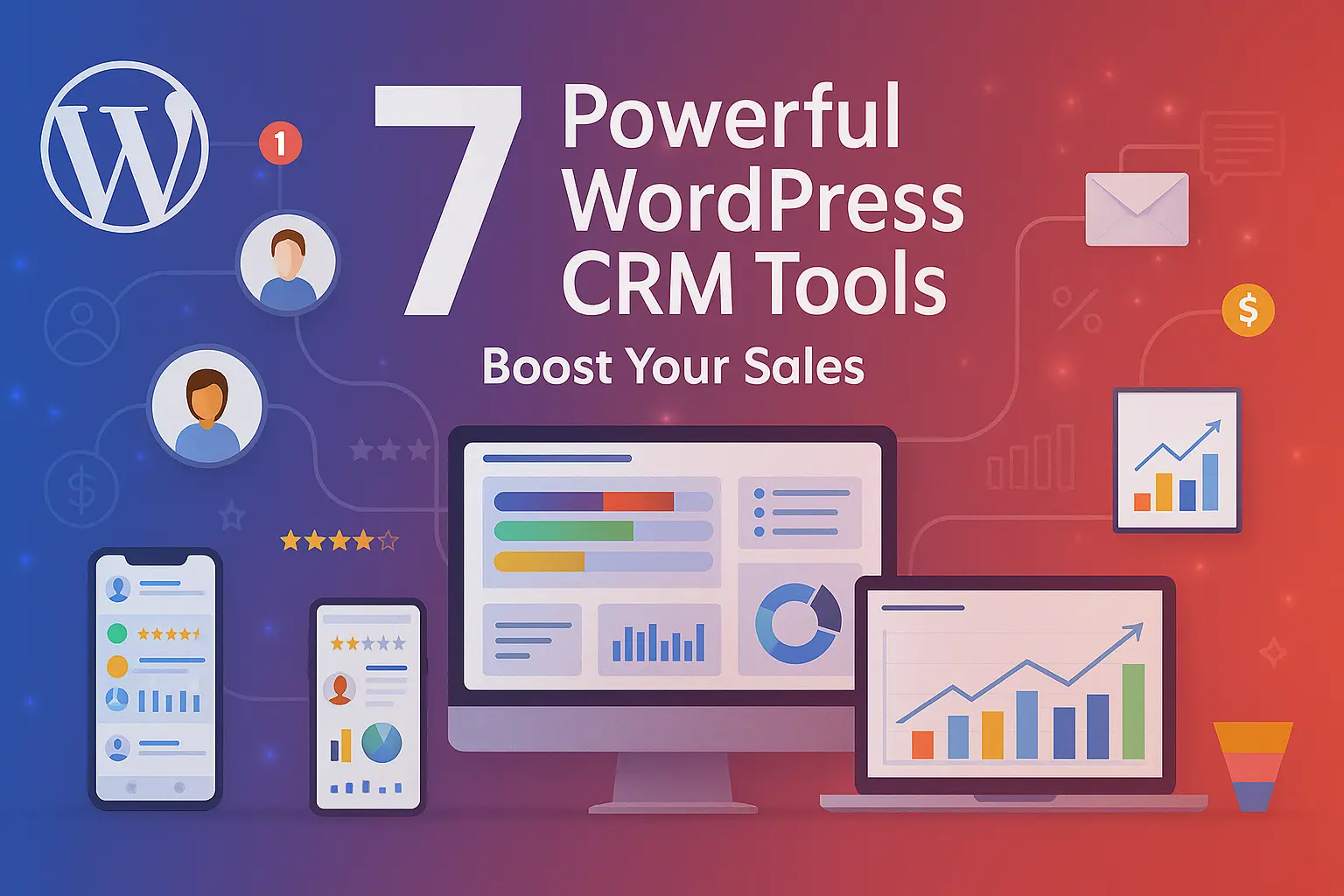Check out
5 Best CMS Platforms: Ultimate Guide to Website SuccessA lot of articles that compare website builders concentrate on superficial aspects like pricing, templates, and usability. Although these elements are important, they frequently overlook the long-term effects of selecting the appropriate platform. Convenience may be the initial goal for both individuals and businesses, but as websites expand, they may encounter unforeseen difficulties.
This guide examines six hidden facts about Squarespace vs WordPress in 2026. Costs, design flexibility, SEO tools, plugin ecosystems, upkeep, and migration will all be covered. Users can make well-informed decisions that align with their growth plans and business objectives by being aware of these hidden facts.

Most readers want quick, actionable insights before delving into in-depth analysis when comparing Squarespace vs WordPress. Key takeaways can help with that. They provide you with an overview of the key distinctions, highlighting the strengths and weaknesses of each platform. Consider this the overarching perspective that directs the remainder of the piece.
- Easy to Use: Squarespace’s user-friendly drag-and-drop editor is ideal for people who need a visually appealing website fast.
- Flexibility in Customization: WordPress provides almost infinite customization options, giving users complete command over functionality, features, and design.
- Cost considerations: Although WordPress is fundamentally free, there are ongoing fees associated with hosting, domain registration, and premium plugins.
- Design Quality: Squarespace offers excellent templates that are perfect for service-based companies and creatives.
- Technical Maintenance: WordPress necessitates regular plugin management and updates, which can be difficult for novices.
- Plugin Ecosystem: Squarespace offers carefully chosen, reliable extensions, but with few options, while WordPress offers a large library of plugins.
- Top Use Cases:
- Squarespace: Small business owners, artists, and freelancers who value simplicity and design.
- WordPress: scalable e-commerce, content-rich websites, and companies requiring sophisticated customization.
The key distinctions are emphasized in these takeaways, but the subtleties that influence long-term choices are not made clear.

Photo by Headway on Unsplash
Download Our Free Website Guides
Squarespace Guide
Download PDFWordPress Guide
Download PDFIn theory, WordPress is free. Users must, however, take into account premium plugins, backups, security, and hosting. Essential plugins for SEO tools, security, or design can cost hundreds of dollars a year, while a quick and dependable hosting plan might cost $15 to $30 per month. Costs accumulate over time, particularly when using several premium themes or plugins.
Squarespace provides all-in-one packages that cover security, templates, and hosting. Even though e-commerce transaction fees are predictable, their limited scalability may cause costs to rise as your company expands. For instance, in order to access more sophisticated features, a small online store may have to pay more for higher-tier plans.
- 1 year: Squarespace might be a little more expensive up front, while WordPress needs a one-time investment in hosting and plugins.
- 3 Years: Squarespace pricing stays the same, but WordPress becomes more affordable if properly maintained.
- 5 Years: On both platforms, businesses might encounter unanticipated expenses. Squarespace charges for more advanced growth features, while WordPress scales better but needs ongoing maintenance.
Squarespace templates have a striking appearance. Layout modifications, however, may be constrained by structural limitations. Branding efforts may be hampered by users’ inability to apply distinctive design elements. For instance, workarounds are frequently needed when adding intricate interactive features.
WordPress offers almost infinite customization options. Users can use different page builders, modify templates, and add custom code. On the other hand, excessive freedom may lead to maintenance issues, inconsistent code, and code bloat. As websites grow, even builders like Gutenberg may add limitations.
- For users who desire complete creative control, WordPress is perfect.
- For users who appreciate well-designed, usable templates, Squarespace is ideal.
- The decision hinges on striking a balance between ease of maintenance and design flexibility.
Let’s Build Something Great Together
Partner with us to create a modern, responsive website that drives growth and builds trust for your business.
Contact UsWordPress gives you fine-grained control over SEO. Sitemaps, canonical rules, redirects, meta tags, and schema can all be optimized by users. Plugins make it simple to implement sophisticated strategies like speed optimization, structured data, and multilingual websites.
Squarespace lowers the learning curve by automating SEO tasks. This covers sitemaps, page indexing, and simple meta tags. However, there aren’t many sophisticated SEO requirements, such as multilingual optimizations, structured data, or intricate redirects.
- WordPress for comprehensive control and sophisticated SEO tools.
- Squarespace for easy, automated SEO administration.
- To maximize long-term visibility, businesses should balance control and convenience.
E-commerce, analytics, forms, SEO, and performance are all covered by the extensive plugin ecosystem that WordPress provides. Inadequately maintained plugins may cause issues, compromise security, or cause websites to lag.
Squarespace offers a small number of carefully chosen extensions that are reliable. Sometimes a desired feature might not be available, necessitating time-consuming and costly manual workarounds.
- WordPress is appropriate for users who are technically capable of handling plugins.
- For people who value dependability and simplicity, Squarespace is superior.
- Selecting the ideal platform requires striking a balance between ease of maintenance and freedom.
Due to URL structure limitations and limited data export, moving from Squarespace can be challenging. During migration, high-volume blogs or e-commerce sites may experience data loss or higher expenses.
WordPress gives you complete control over the structure and content. However, migration may be made more difficult by plugin dependencies or legacy themes. A seamless transition and preservation of SEO value are guaranteed by careful planning.
- Choose a platform that accommodates your scale and plan for growth.
- Before creating intricate websites, take migration restrictions into account.
- Flexibility is important for companies that intend to expand quickly.
Proactive updates are necessary for WordPress core versions, plugins, and themes. Technical debt, security threats, and performance problems result from ignoring updates.
The majority of updates are handled automatically by Squarespace. Despite its convenience, users lose backend insight, which could affect their ability to control customizations and growth.
- WordPress gives you control, but it takes work and focus.
- Squarespace restricts backend visibility while offering convenience.
- If plugins are not properly maintained or updates are neglected, technical debt can build up over time.
Squarespace Vs WordPress Comparison
| Secret | WordPress | Squarespace | Example Use Case |
|---|---|---|---|
| Costs | Higher initial, flexible long-term | Predictable, may limit scaling | E-commerce store |
| Design | Unlimited customization | Template constraints | Portfolio site |
| SEO | Full control | Automated, limited advanced tweaks | Content-heavy blog |
| Plugins | Vast ecosystem, potential conflicts | Stable but limited | Membership site |
| Growth & Migration | Flexible, but dependencies matter | Migration constraints | Expanding startup |
| Maintenance | Requires ongoing updates | Mostly handled automatically | Freelance site |

It takes more than just features to decide between Squarespace vs WordPress. It all comes down to aligning the platform’s advantages with your long-term goals. The best option will depend on your priorities, whether they are technical control, growth, or design. Although some users find both platforms useful, forcing the incorrect fit can result in regrets years later. To match your objectives with the appropriate platform, use the following advice.
- Squarespace is perfect for freelancers because of its user-friendly interface and well-designed layouts
- WordPress is recommended for small businesses and startups due to its SEO tools, flexibility, and long-term scalability
- Enterprises or brands with a lot of content. WordPress facilitates migrations, sophisticated plugins, and intricate structures
- Hybrid Approach Some users purposefully use both platforms, utilizing WordPress for blogs or e-commerce and Squarespace for portfolio sites
- Non-Technical Novices: If you’re looking for a quick, no-code solution that doesn’t require updates or plugins, Squarespace is the better option when compared to Squarespace vs WordPress
- Scalable Startups: If you anticipate that your company will change course, grow, or need unique features that Squarespace is unable to provide, WordPress is a safer choice
Is Squarespace the best website builder?
For small business owners, freelancers, and creatives who appreciate clean templates and ease of use, Squarespace is regarded as one of the greatest choices. In the Squarespace vs WordPress comparison, Squarespace excels at usability but might not be the greatest option for intricate websites that need extensive customization, scalability, or sophisticated SEO tools.
Is WordPress still the best for SEO?
Indeed, WordPress is still among the best SEO platforms in 2026. Users have complete control over speed optimization, redirects, meta tags, and schema. When comparing WordPress vs Squarespace, For companies that require long-term growth through organic search visibility, WordPress is unquestionably more potent than Squarespace.
Is WordPress still used in 2026?
Of course. More than 40% of websites globally are powered by WordPress as of 2025 and 2026. Because of its versatility, extensive plugin ecosystem, and scalability for everything from blogs to enterprise-level websites, WordPress continues to dominate the Squarespace vs WordPress debate.
Is Squarespace just WordPress?
No, Squarespace isn’t just another WordPress variant. The architectures of the two platforms differ greatly. The main difference between Squarespace vs WordPress is that Squarespace is an all-in-one hosted solution with more limitations but more convenience, whereas WordPress is self-hosted, open-source, and infinitely customizable.
Squarespace vs WordPress: Which is more secure?
Because Squarespace is fully hosted, security is taken care of for you by default. The hosting company, plugins, and frequent updates all affect WordPress security. When it comes to security of Squarespace vs WordPress, Squarespace is simpler for novices than WordPress, but WordPress gives users more control but also necessitates proactive vulnerability management.
What website builder has the best SEO?
Because it offers advanced customization, granular control, and robust plugins like Rank Math and Yoast SEO, WordPress is commonly recognized as the best website builder for SEO. Although Squarespace has built-in SEO tools, it is not as flexible as WordPress. When comparing Squarespace vs WordPress, companies that want to rank highly in search results typically choose WordPress.
Which platform is better for e-commerce?
The most robust and adaptable e-commerce solution is offered by WordPress with WooCommerce, which is ideal for expanding online stores internationally. Although Squarespace also provides e-commerce capabilities, these are better suited for small to medium-sized businesses. WordPress is typically preferred by those who intend to grow their business through advanced features, payment integrations, or international sales when comparing Squarespace vs WordPress.
Is Wix, WordPress, or Squarespace better?
The user’s objectives determine this. WordPress is the most effective for long-term growth and SEO, Squarespace is excellent for professionals who are focused on design, and Wix is straightforward and easy for beginners to use. In the Squarespace vs WordPress WordPress typically outperforms Squarespace in terms of scalability, whereas Squarespace is more appealing to people seeking a simple design solution.
Is Squarespace worth it for small business?
For small businesses that require excellent design and speedy setup, Squarespace is definitely worth the investment. In the Squarespace vs WordPress argument, Squarespace prioritizes speed and ease of use, while WordPress is better suited for users seeking scalability, SEO control, and sophisticated e-commerce.
Can Squarespace sites get hacked?
Due to the platform’s management of hosting, updates, and SSL certificates, Squarespace websites are typically safe. But no system is impenetrable. According to the Squarespace vs WordPress comparison, WordPress websites are more vulnerable because of plugins and manual updates, but they also support more robust custom security configurations.
It takes more than just selecting a website builder to decide between Squarespace vs WordPress in 2026. It all comes down to knowing your objectives, your degree of technical proficiency, and the direction you want to take your brand. Squarespace is ideal for people who want a simple, elegant website that requires little work. It manages hosting, security, and design without requiring additional tools.
WordPress, on the other hand, is incredibly flexible. It provides infinite plugins, total control, and sophisticated SEO features. That’s why in the Squarespace vs WordPress debate , many professionals and businesses ultimately choose WordPress over Squarespace when considering the long term goals.
However, it is up to you to make the choice between Squarespace vs WordPress . Squarespace is the best option if you want speed and ease of use. WordPress is your best option if you want expansion, scalability, and sophisticated functionality. Although each platform is great in its own right, you can now make an informed decision about which course to take for your 2026 digital journey after learning these little-known facts.




